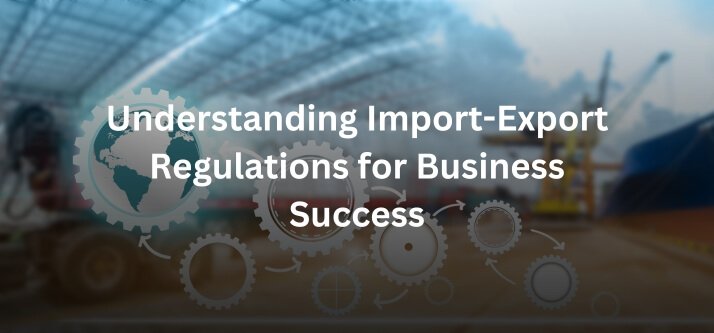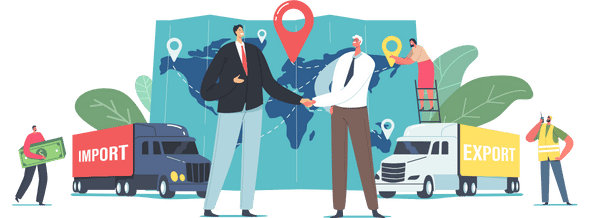
Navigating import-export regulations is essential for business success in international trade. This blog provides a clear understanding of the rules and requirements that govern global transactions. Learn the key regulations to ensure compliance and avoid costly mistakes. Mastering these regulations will streamline your operations and enhance your competitive edge :

1. Know Local and Global Laws
Each country has its own set of import-export regulations, and global agreements further influence these rules. Research the laws and treaties that apply to your business. Understanding these legal requirements helps you avoid penalties, fines, and trade disruptions. Stay updated on both local and international legal frameworks.
2. Understand Tariffs and Duties
Tariffs and duties are taxes imposed on imported goods and can significantly impact your pricing strategy. Know the rates for different goods in your target markets. Accurately calculating tariffs ensures that your pricing remains competitive and your profit margins stay intact. Researching these costs is key to minimizing unexpected expenses.
3. Compliance with Customs Procedures
Customs regulations are critical for clearing goods across borders. Ensure your shipments meet all customs requirements, including correct documentation, packaging, and labeling. Working with a customs broker can simplify the process and prevent delays. Meeting these regulations ensures faster processing and fewer disruptions.
4. Product-Specific Regulations
Some products, like food, chemicals, or pharmaceuticals, are subject to stricter regulations due to safety, health, or environmental concerns. Research the specific rules governing your product category. Compliance with product-specific regulations reduces the risk of rejection or recalls. Stay informed about changes in regulatory standards to remain compliant.
5. International Trade Agreements
Free trade agreements (FTAs) and regional trade pacts can provide benefits like reduced tariffs and easier market access. Identify the trade agreements that apply to your business. Leverage these agreements to reduce costs and gain a competitive advantage. Understanding trade agreements helps you navigate cross-border trade with fewer barriers.
6. Documentation Accuracy and Transparency
Proper documentation is vital for smooth international transactions. Ensure your invoices, shipping documents, certificates of origin, and other paperwork are accurate. Errors in documentation can lead to customs delays or legal complications. Always double-check documentation for accuracy before shipment to avoid problems.
7. Risk of Non-Compliance
Failing to comply with regulations can result in severe consequences, including fines, shipment delays, or losing access to certain markets. Make compliance a priority by staying informed about evolving regulations. Implement systems to track and manage compliance across all stages of trade. Non-compliance risks can be mitigated with proper planning and vigilance.
In conclusion
Understanding import-export regulations is vital for international business success. Adhering to laws, tariffs, and customs requirements ensures smooth operations and avoids costly mistakes. By mastering product-specific regulations, leveraging trade agreements, and maintaining accurate documentation, businesses can streamline their global operations. Regularly updating your knowledge of regulations helps mitigate the risks of non-compliance. The more informed and prepared you are, the more successfully your business will navigate the complexities of international trade.
Phone Number: +91 9099492499 , Email Address: arthhglobal1704@gmail.com

